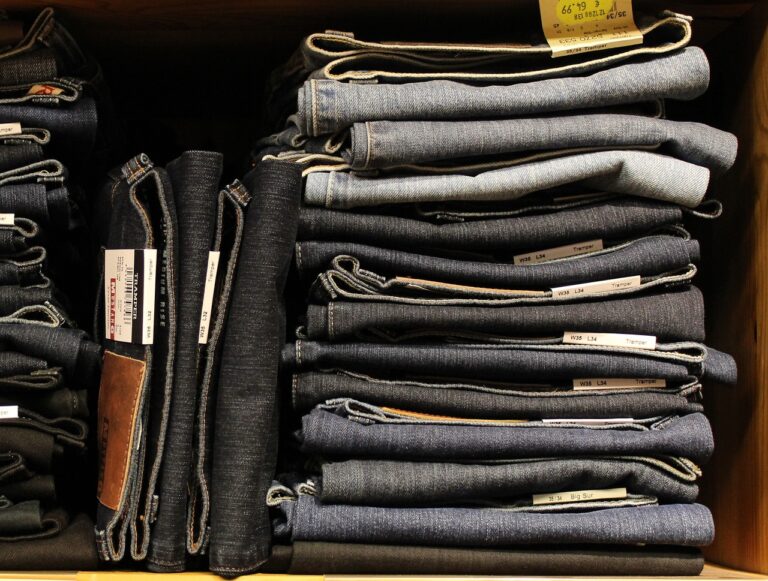Social Responsibility in Fashion: Brands Making a Difference: 247betbook, Radhe exchange login, World 777 id
247betbook, radhe exchange login, world 777 id: Social responsibility in fashion has become an increasingly important topic in recent years. Consumers are becoming more conscious of the environmental and social impact of the clothes they wear, and are demanding more transparency from the brands they support. Thankfully, many fashion brands are stepping up to the challenge and making a difference in the industry.
1. Sustainable Materials
One of the most significant ways that fashion brands are making a difference is by using sustainable materials in their clothing. This includes materials like organic cotton, recycled polyester, and Tencel, which are all better for the environment than traditional materials. Brands like Patagonia and Reformation have been leaders in this area, showing that it is possible to create stylish and sustainable clothing.
2. Fair Wages and Working Conditions
Another important aspect of social responsibility in fashion is ensuring that workers throughout the supply chain are paid fairly and work under safe conditions. Brands like Everlane and People Tree have prioritized fair wages and transparency in their manufacturing processes, setting an example for the industry as a whole.
3. Ethical Production
Ethical production practices, such as supporting local artisans and craftsmen, are also gaining traction in the fashion industry. Brands like Ace & Jig and Stella McCartney have made it a priority to work with artisans in developing countries, helping to preserve traditional craftsmanship and provide sustainable livelihoods for communities.
4. Giving Back
Many fashion brands are also giving back to their communities through charitable initiatives and partnerships. For example, Warby Parker donates a pair of glasses to someone in need for every pair sold, while Toms shoes gives a pair of shoes to a child in need for every pair purchased. These brands are not only making a positive impact on the world, but also engaging consumers in their mission.
5. Transparent Supply Chains
Transparency in the fashion industry is crucial for holding brands accountable for their actions. Brands like H&M and Zara have committed to publishing their supplier lists and ensuring that their manufacturing processes are ethically sound. By being transparent about their practices, these brands are building trust with consumers and setting a new standard for the industry.
6. Environmental Impact
Finally, many fashion brands are taking steps to reduce their environmental impact, such as by using eco-friendly packaging, reducing water usage in production, and minimizing waste. Brands like Eileen Fisher and Mara Hoffman are leading the way in sustainable fashion practices, proving that it is possible to create beautiful clothing without harming the planet.
In conclusion, social responsibility in fashion is an important issue that should not be overlooked. By supporting brands that prioritize sustainability, ethical production, and giving back to their communities, consumers can make a positive impact on the world. As more brands embrace these values, the fashion industry as a whole can become a force for good.
FAQs
1. How can I tell if a fashion brand is socially responsible?
One way to determine if a fashion brand is socially responsible is to look for certifications such as Fair Trade or B Corp. Additionally, you can research the brand’s manufacturing practices, materials used, and charitable initiatives to get a better sense of their commitment to social responsibility.
2. Are sustainable materials more expensive?
In some cases, sustainable materials can be more expensive than traditional materials due to the higher cost of production. However, as demand for sustainable materials grows, prices are becoming more competitive. Additionally, investing in high-quality, long-lasting clothing made from sustainable materials can be more cost-effective in the long run.
3. How can I support social responsibility in fashion as a consumer?
As a consumer, you can support social responsibility in fashion by choosing to buy from brands that prioritize sustainability, fair wages, and ethical production. You can also educate yourself about the issues facing the fashion industry and advocate for more transparency and accountability from brands. By voting with your wallet, you can help drive positive change in the industry.







